Filter by
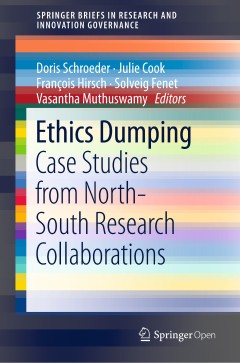
Ethics dumping : case studies from north-south research collaborations
This book provides original, up-to-date case studies of “ethics dumping” that were largely facilitated by loopholes in the ethics governance of low and middle-income countries. It is instructive even to experienced researchers since it provides a voice to vulnerable populations from the forementioned countries. Ensuring the ethical conduct of North-South collaborations in research is a proc…
- Edition
- -
- ISBN/ISSN
- 9783319647319
- Collation
- xiii, 134p. : ill.
- Series Title
- -
- Call Number
- 174.9 ETH e
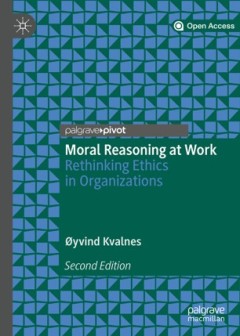
Moral reasoning at work : rethinking ethics in organizations
This book is open access under a CC-BY license. Moral dilemmas are a pervasive feature of working life. Moral Reasoning at Work offers a fresh perspective on how to live with them using ethics and moral psychology research. It argues that decision-makers must go beyond compliance and traditional approaches to ethics to prepare for moral dilemmas. The second edition has been updated with a rang…
- Edition
- -
- ISBN/ISSN
- 9783030151911
- Collation
- viii, 145p. : ill.
- Series Title
- -
- Call Number
- 174.4 KVA m

Moral History from Herodotus to Diodorus Siculus
Why did human beings first begin to write history? Lisa Irene Hau argues that a driving force among Greek historians was the desire to use the past to teach lessons about the present and for the future. She uncovers the moral messages of the ancient Greek writers of history and the techniques they used to bring them across. Hau also shows how moral didacticism was an integral part of the writin…
- Edition
- -
- ISBN/ISSN
- 9781474411073
- Collation
- VIII, 312 p.
- Series Title
- -
- Call Number
- 170.938 HAU m

The privacy engineer's manifesto : getting from policy to code to QA to value
"It's our thesis that privacy will be an integral part of the next wave in the technology revolution and that innovators who are emphasizing privacy as an integral part of the product life cycle are on the right track." --The authors of The Privacy Engineer's Manifesto The Privacy Engineer's Manifesto: Getting from Policy to Code to QA to Value is the first book of its kind, offering industr…
- Edition
- -
- ISBN/ISSN
- 9781430263562
- Collation
- xxxvi, 400p. : ill.
- Series Title
- -
- Call Number
- 005.8 DEN p

Scientific integrity : the rules of academic research
The growing attention for scientific integrity is part of a wider culture of professionalization and accountability − which appears to signal that integrity is no longer self-evident as a core value of professional conduct. Examples abound. But what is scientific integrity? Why does it matter? What are the issues, and what is at stake? What do we know about the nature and scope of violations …
- Edition
- -
- ISBN/ISSN
- 9789400602182
- Collation
- 182p. : ill.
- Series Title
- -
- Call Number
- 174.95072 SCH s
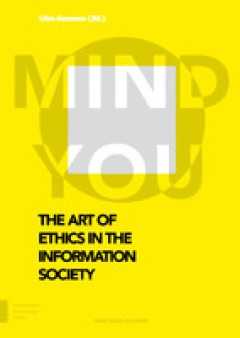
The art of ethics in the information society : mind you
New technologies are often implemented before their ethical consequences have been fully understood. In this volume, experts working in the sciences, arts, and philosophy of technology share novel perspectives on how we can
- Edition
- -
- ISBN/ISSN
- 9789462984493
- Collation
- 144p. : ill.
- Series Title
- -
- Call Number
- 190 ART a
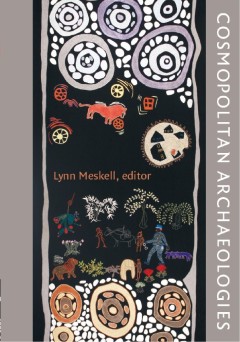
Cosmopolitan archaeologies
This book delves into the politics of contemporary archaeology in an increasingly complex international environment. Describing various forms of cosmopolitan engagement, the contributors explore the implications of applying the cosmopolitan ideals of obligation to others and respect for cultural difference to archaeological practice, showing that those ethics increasingly demand the rethinking …
- Edition
- -
- ISBN/ISSN
- 9780822344322
- Collation
- 296p. : ill.
- Series Title
- -
- Call Number
- 930.1 COS c
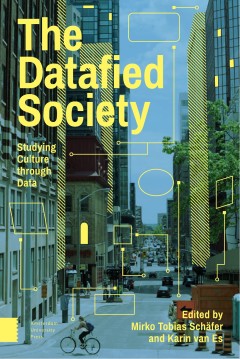
The datafied society : studying culture through data
As more and more aspects of everyday life are turned into machine-readable data, researchers are provided with rich resources for researching society. The novel methods and innovative tools to work with this data not only require new knowledge and skills, but also raise issues concerning the practices of investigation and publication. This book critically reflects on the role of data in academi…
- Edition
- -
- ISBN/ISSN
- 9789048531011
- Collation
- 267p. : ill.
- Series Title
- -
- Call Number
- 302.2 DAT d
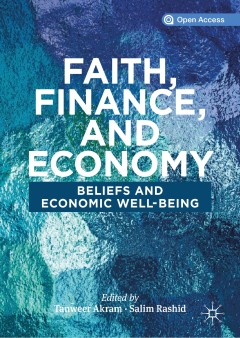
Faith, finance, and economy : beliefs and economic well-being
This open access book seeks to foster a multidisciplinary understanding of the ties between faith, financial intermediation, and economic progress by drawing on research across economics, finance, history, philosophy, ethics, theology, public policy, law, and other disciplines. Chapters in this edited volume examine themes as consequential as economic opportunities, real world outcomes and fait…
- Edition
- -
- ISBN/ISSN
- 9783030387846
- Collation
- xi, 239p. : ill
- Series Title
- -
- Call Number
- 201.633 FAI f

Drones and support for the use of force
Drones and Support for the Use of Force utilizes experimental research to analyze the effects of combat drones on Americans’ support for the use of force. The authors develop expectations drawn from social science theory and then assess these conjectures using a series of survey experiments. Their findings—that drones have had important but nuanced effects on support for the use of force�…
- Edition
- -
- ISBN/ISSN
- 9780472901173
- Collation
- 244p. : ill.
- Series Title
- -
- Call Number
- 358.414 WAL d
 Computer Science, Information & General Works
Computer Science, Information & General Works  Philosophy & Psychology
Philosophy & Psychology  Religion
Religion  Social Sciences
Social Sciences  Language
Language  Pure Science
Pure Science  Applied Sciences
Applied Sciences  Art & Recreation
Art & Recreation  Literature
Literature  History & Geography
History & Geography